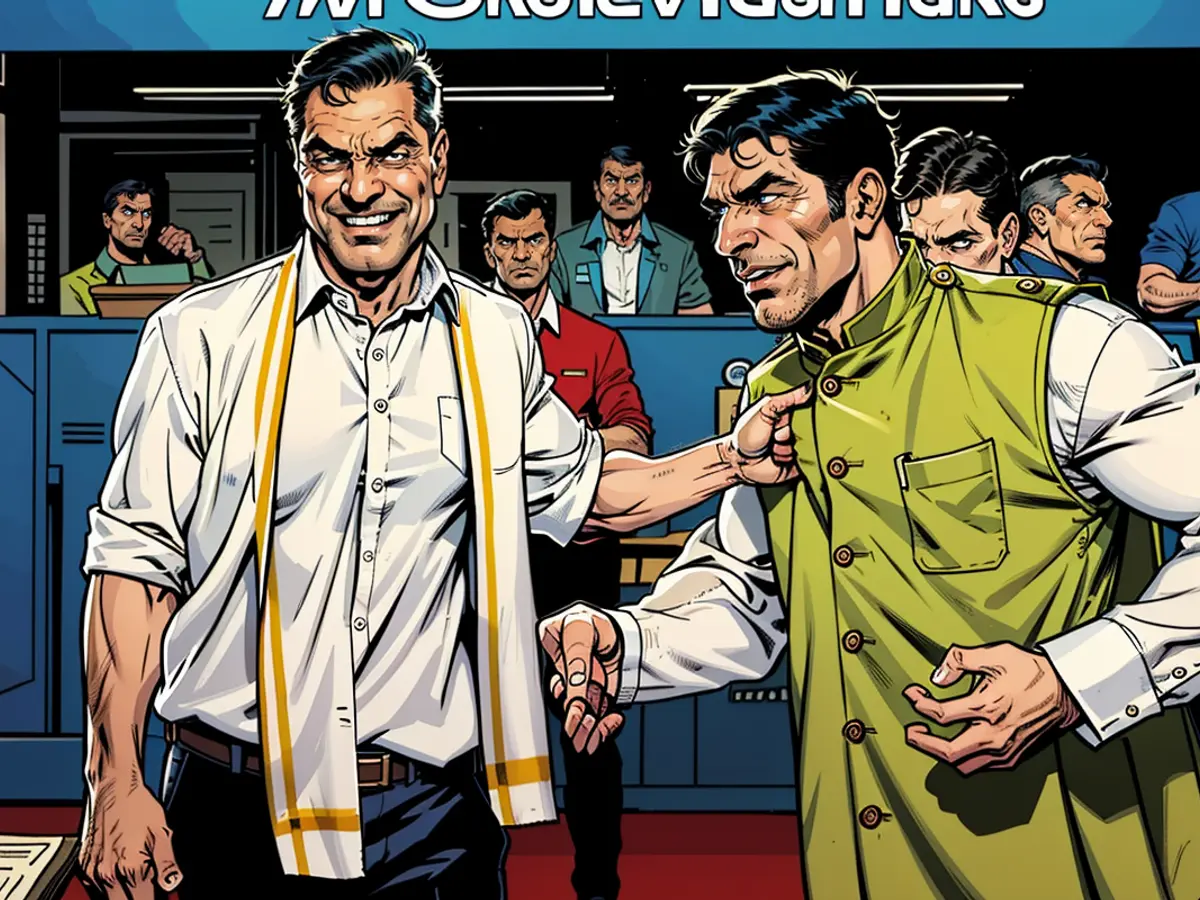Habeck intends to travel to India with the aim of shedding some pounds.
The German government is eager to strike a free trade deal with India, but negotiations with the world's most populous nation haven't been smooth sailing. Enter Economy Minister Habeck, who's got an idea.
India, a land of stark contrasts, has seen a surge in self-assurance and economic growth lately. Trade Minister Shri Piyush Goyal embodies this newfound confidence, and during the opening of the German economy's Asia-Pacific Conference in New Delhi, he made no secret of India's strength. He even called Habeck his "brother Robert" and praised India's dynamism, in contrast to Germany's stagnant economy. But these two could still form a "tasty duo" - think "Masala Chai and Pretzel."
The German government is deeply invested in strengthening economic ties with India, and a free trade agreement is high on their list. Chancellor Olaf Scholz led a large part of the cabinet to New Delhi for the German-Indian government consultations.
India, with its 1.4 billion inhabitants, is one of the world's current economic growth engines, according to the International Monetary Fund. This year, India's GDP is projected to grow by 7 percent, and next year, it's expected to grow by 6.5 percent. India's population is young, with half being between 25 and 64 years old. Germany, on the other hand, is dealing with economic stagnation, forecasting only 0.8 percent growth next year.
India isn't a pushover
It's no surprise, then, that Goyal emphasized that India isn't negotiating from a position of weakness. "Mutual sensitivities" must be respected. Essentially, Goyal means that the EU is pushing for standards that India deems too stringent or irrelevant to trade, such as the carbon border adjustment mechanism. For Goyal, these are unacceptable trade barriers. India won't just roll over and accept anything.
The negotiations are complex, and there are several hurdles to overcome. The two sides have been trying to agree on a free trade deal for two decades now. The talks were suspended in 2013 and only resumed in 2022. Habeck Branded the negotiations as a "joke," urging the move forward. Scholz assured that the German government is pushing for a quick conclusion. According to Scholz, it could be done in months, not years, turning to Indian Prime Minister Narendra Modi. It's time to turn words into action, Scholz said, pushing for more ambition.
Habeck proposed a scaled-down agreement to make some progress. The agreement could, for example, exclude the agricultural sector. India is particularly protective of its agriculture and wants to shield it from European competition. A significant portion of the population relies on agriculture, up to 80 percent in some regions. In contrast, agriculture in Germany accounts for only 2 percent and is characterized by large-scale industrial production.
Bollywood as a blueprint for trade deals
"We should focus on practical, quickly implementable things," said Habeck, referring to the EU Commission. This might mean the industrial sector, which is essential to both Indian and German economies. "We can wrap things up at 70 or 80 percent," Habeck added.
Indian Minister Goyal shares similar views. The day before, he spoke at an event hosted by APK, preceded by a Bollywood-style dance performance. For Goyal, this was a successful analogy. In Bollywood films, seemingly different people come together, he said. Despite their differences, they eventually find what unites them and come together.
As of now, the connection between Bollywood films and the free trade agreement talks is only in their length.
The EU, as a significant global economic entity, is also involved in the ongoing negotiations between Germany and India for a free trade deal.
Given India's commitment to protecting its agricultural sector, it might be challenging to include this sector in any potential agreement between the EU and India.








